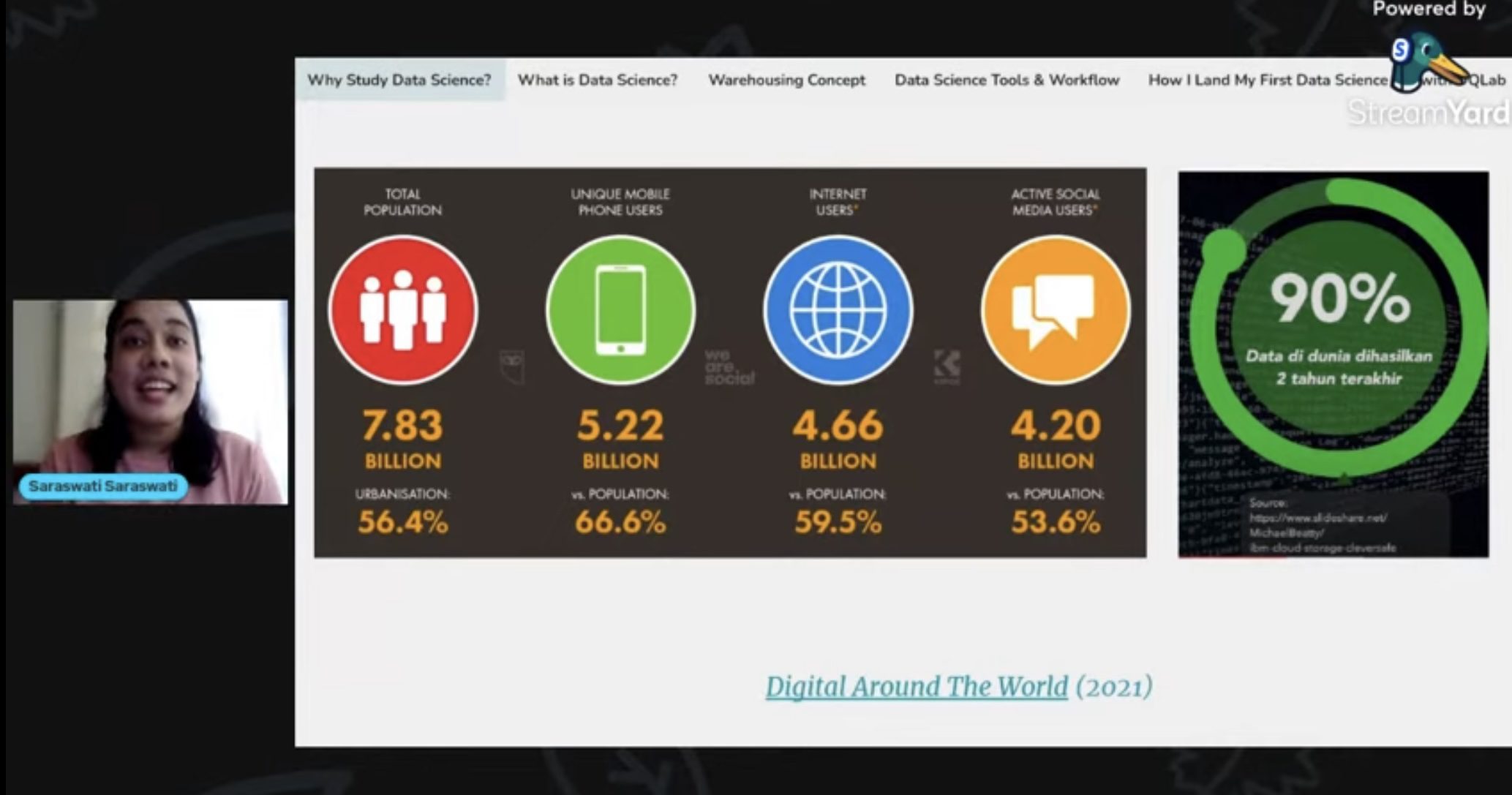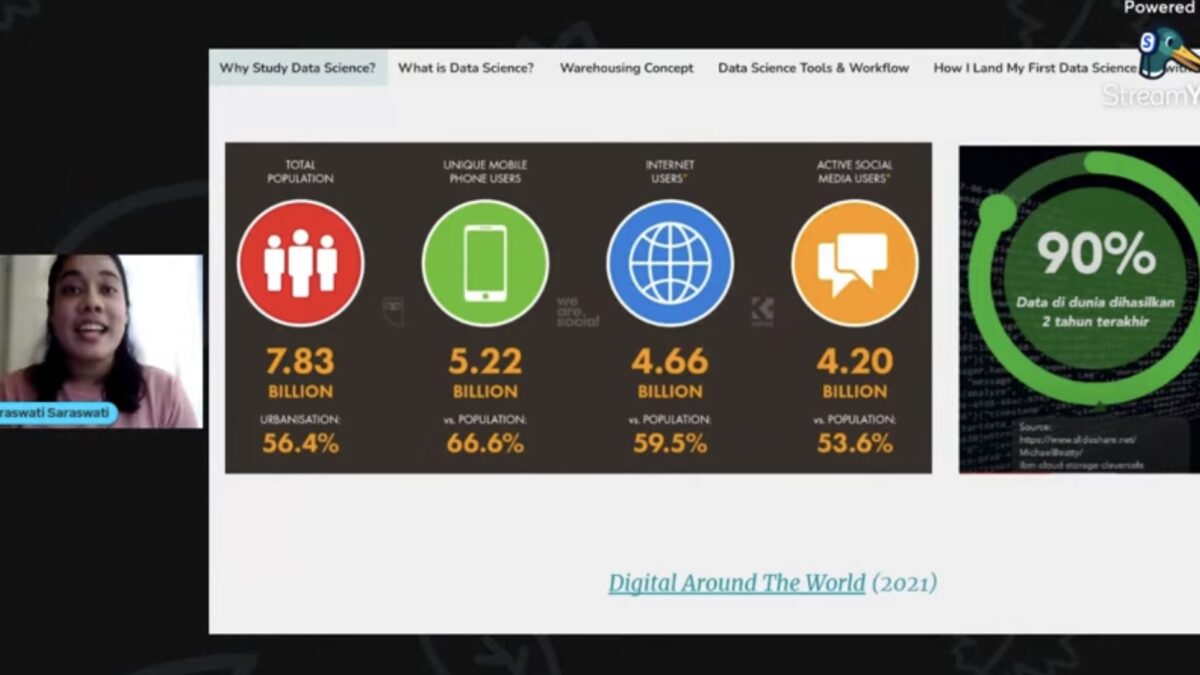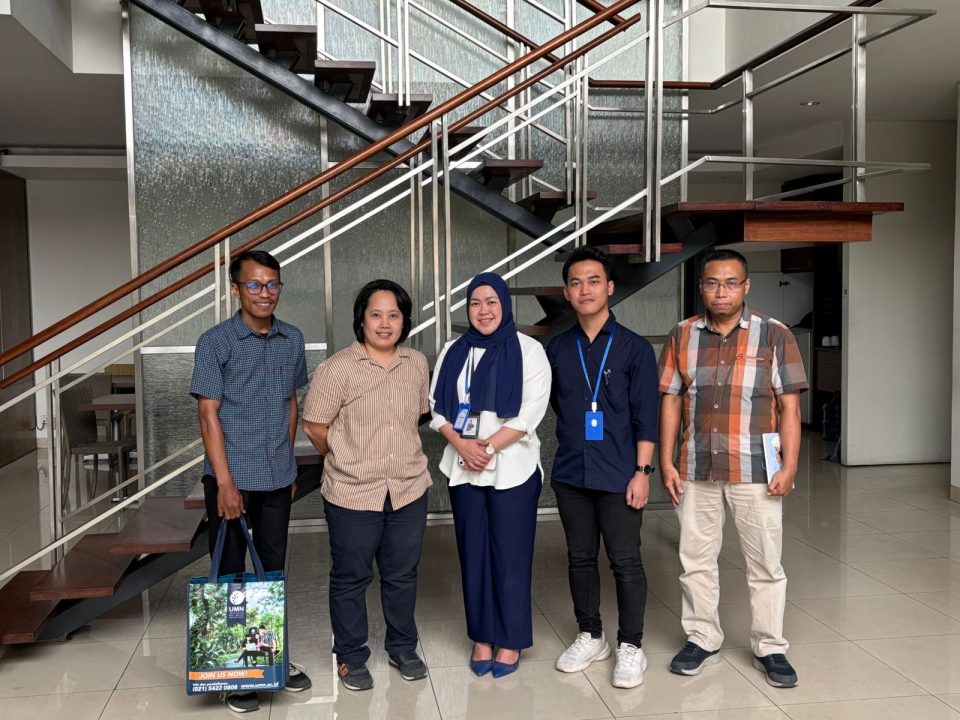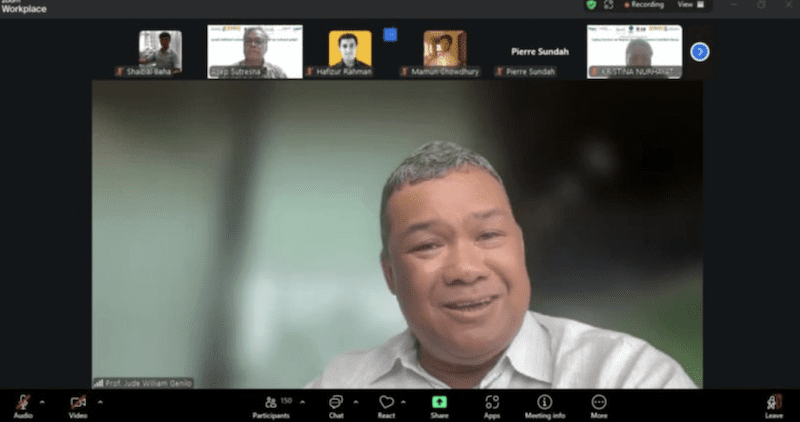
Check Out the Differences between Accountants and Auditors!
November 7, 2022
UMN Prepares New Architect Professional Education Study Program, First in LLDIKTI Region III
November 7, 2022
Tangerang – Currently, many people are interested in learning Data Science without the need for a particular background, despite majors or courses that study and pursue a career in data are Computer Science, Statistics, Mathematics, or Actuarial Science. Rapid technological developments produce vast amounts of data all the time. This encourages companies to be able to manage data better so that the company’s growth is also faster.
Many people often use technological advances that also make it easier for anyone to get information to learn data science by themselves (self-taught). Some knowledge about Data Science can be found through articles, videos, podcasts to free online courses. Even though they can learn self-taught, many are still confused about where and how to start learning Data Science.
Through a Live Session held online last Friday, August 19, DQLab invited fellow students and participants with non-IT backgrounds to learn about Data Science and how to understand it self-taught effortlessly. This event was hosted by Saraswati, the Business Intelligence of Bibit.
Having a non-IT educational background is the main reason for Saras to study Data Science as a self-taught. She graduated from the Bandung Institute of Technology (ITB), majoring in Post Harvest Technology. Through this live session, Saras revealed that her previous education was inversely related to the profession she is currently in. Even so, she said that she greatly desired to have a career in Data Science since she was in college.
“I really wanted to have a career in Data Science since I was in college. During the thesis defense, I attended training and Data Science classes. I joined the class after participating in the Professional Academy PROA training program by Kominfo and DQLab. From there, I continued to learn about Data Science through courses until now I can work as a Business Intelligence at Bibit,” Saras said.
Many majors in lectures provide in-depth curriculum materials around Data Science, such as IT, Statistics, and other engineering majors. However, this does not prevent students with non-IT backgrounds from studying Data Science. According to Saras, the primary key to preparing to learn Data Science is curiosity or high curiosity. That way, students can begin to seek and fulfil that curiosity by seeking as much information as possible and studying it.
“Self-taught learning is driven by curiosity, while formal learning is encouraged by the curriculum. If we are self-taught, we start from curiosity, we explore on our own because we don’t know where to learn it,” Saras said.
In studying Data Science, it is necessary to know what profession you are interested in getting into later. Many Data Science professions are interesting and in accordance with our respective interests: Data Scientist, Data Analyst, Data Engineer, Business Intelligence, Artificial Intelligence Specialist, Machine Learning Specialist, and so on. Knowing these interests allows you to learn what materials and skills need to be learned and honed.
“Well, I’m business intelligence, so what I learn and hone is about knowledge about business and data analytics such as coding. If there are friends who are interested in mathematics or computer science, you can make algorithms like the work of an AI specialist,” Saras said
For Non-IT students like Saras, you can first learn the basics of Data Science, such as an introduction to Data Science, the fundamentals of the programming language needed, and cases in Industry. You can do this by taking online courses to make your study time more flexible.
According to Saras, it will be excellent if your chosen course has a career track or level that matches your professional interests. The reason is that learning will be more structured and easy to understand. Apart from studying it theoretically, doing data projects and joining the Data Science community can also help learn Data Science.
“If you want to learn Data Science, especially non-IT background, start with the questions why, how, and the timeline to answer those questions. So we can know, what profession we really want to be in and know our own learning path,” Saras said, closing the session.
The essence of all professions with a Data Science background is processing data to produce information or insight that can be used to solve a problem.
A career in data does not have to have an IT background. Everyone can become data talents by honing Data Science skills with DQLab.
English translation by Levina Chrestella Theodora
Kuliah di Jakarta untuk jurusan program studi Informatika| Sistem Informasi | Teknik Komputer | Teknik Elektro | Teknik Fisika | Akuntansi | Manajemen| Komunikasi Strategis | Jurnalistik | Desain Komunikasi Visual | Film dan Animasi | Arsitektur | D3 Perhotelan , di Universitas Multimedia Nusantara. www.umn.ac.id





